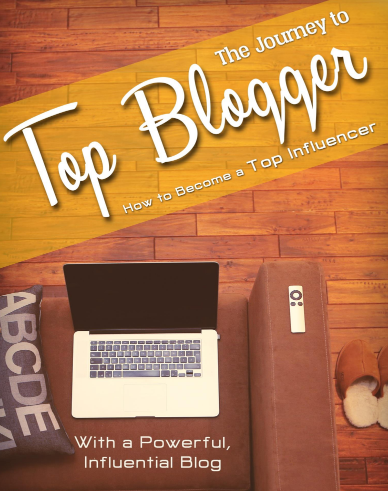Top Resume Books That Include Cover Letter Writing Tips Too
When it comes to job hunting, your resume might get your foot in the door—but it’s your cover letter that can make you stand out. Despite this, many job seekers spend hours perfecting their resumes and barely glance at their cover letters. That’s a mistake, especially in today’s competitive job market, where every document you submit is a chance to showcase your personality, motivation, and fit.
At Junkybooks, we believe that having a great resume and a well-crafted cover letter is like having a strong handshake and confident eye contact—they go hand-in-hand. The good news? Some of the best resume books also include cover letter writing tips to help you shine in both areas.
In this post, we’ll introduce you to the top resume books that don’t just teach you how to write a killer resume, but also provide insightful, actionable advice on crafting compelling cover letters that get noticed.
Why Cover Letters Still Matter
Even in the age of LinkedIn profiles and digital portfolios, a good cover letter can be a game changer. Employers use cover letters to:
-
Gauge your communication style
-
Understand your motivation for applying
-
See how well you’ve researched the company
-
Spot whether you're truly a culture fit
When done right, a cover letter adds a human voice to your application. It connects the dots between your experience and the company’s needs.
Now let’s explore the best books that guide you through the entire application process, from resume to cover letter and beyond.
1. “Knock ’em Dead Resumes” by Martin Yate
Martin Yate is a legend in the career writing space, and this book is an all-in-one guide for job seekers. It covers every aspect of resume writing—from format to content—and includes an entire section on cover letters.
What makes it great:
-
Dozens of sample resumes and letters
-
Clear examples of what to say (and what to avoid)
-
Tips on customizing your message for specific industries
Best for: Mid-career professionals, job changers, and anyone who needs real-world examples.
2. “Cover Letter Magic” by Wendy S. Enelow and Louise M. Kursmark
This book is a must-have for anyone who struggles with what to say in a cover letter. While it's focused primarily on cover letters, it pairs beautifully with resume-building advice and includes branding strategies that tie the two documents together.
Why it’s effective:
-
It teaches you how to tell your story
-
Offers 100+ sample letters for different situations
-
Focuses on showing value, not just repeating your resume
Ideal for: Job seekers in creative fields, career changers, and anyone applying to multiple roles.
3. “The Resume Writing Guide” by Lisa McGrimmon
This book strikes a great balance between resume-building theory and practical advice. It walks you through step-by-step techniques for crafting an impactful resume and devotes a full section to creating effective cover letters that feel personal, not generic.
Why we recommend it:
-
Practical templates and examples
-
Guides you through targeting both documents
-
Focus on clarity, relevance, and readability
Perfect for: First-time job seekers and those returning to the workforce.
4. “Resumes for Dummies” by Laura DeCarlo
Part of the popular “Dummies” series, this book is a no-nonsense guide to building a job-winning resume—and yes, it includes cover letters too. It’s approachable, easy to navigate, and packed with advice that still holds up in 2025.
Highlights:
-
Updated sections on modern formats and digital resumes
-
How to tailor your documents for ATS (Applicant Tracking Systems)
-
Simple explanations for cover letter strategy
Best for: Beginners and casual job seekers who want a comprehensive overview.
5. “Modernize Your Resume” by Wendy Enelow and Louise Kursmark
From the same authors behind Cover Letter Magic, this book takes a sleek, updated approach to resume writing for today’s tech-driven job search. It includes a companion section on modern cover letters, such as e-letters and LinkedIn messages.
What’s great about it:
-
Focus on keywords, branding, and layout
-
Real-world samples from professional resume writers
-
Advice on creating different types of letters (cold, referral, follow-up)
Recommended for: Tech-savvy job seekers, remote workers, and modern professionals.
6. “The Damn Good Resume Guide” by Yana Parker and Beth Brown
This straight-talking book lives up to its name—it’s damn good. It helps readers craft resumes that speak clearly and directly. And while it’s compact, it includes a solid chapter on cover letters that focuses on tone and connection.
Standout features:
-
Easy-to-follow format
-
DIY approach to resume and letter writing
-
Emphasis on personal branding
Great for: Entry-level job seekers and anyone tired of cookie-cutter applications.
7. “Cover Letters for Dummies” by Joyce Lain Kennedy
Though it’s primarily a cover letter book, it doesn’t leave resumes behind. Kennedy does a fantastic job showing how the resume and letter should work together. You’ll find examples for almost every career situation, from layoffs to career pivots.
What we love:
-
Focus on storytelling and showing passion
-
Letter templates you can actually use
-
Advice for unconventional career paths
Best for: Anyone who finds cover letters intimidating or awkward.
8. “The Complete Job Search Guide” by Richard Walsh
This one’s more of a job search manual than a resume-specific book, but it includes powerful sections on resumes, cover letters, interviews, and even salary negotiation. It teaches you how to position yourself from start to finish.
Why it stands out:
-
Covers every stage of the job hunt
-
Emphasizes clarity and authenticity in writing
-
Offers advice for building long-term career skills
Ideal for: Career changers, recent grads, and those reentering the job market.
9. “Job Search Letters for Dummies” by Joyce Lain Kennedy
Another gem from Joyce Lain Kennedy, this one focuses entirely on the many types of job search letters you may need—cover letters, thank-you notes, networking letters, and more. It ties beautifully into any resume book you pair it with.
Why it’s smart:
-
Breaks down the anatomy of a strong letter
-
Includes dozens of real-world samples
-
Offers advice for customizing your voice
Use it with: Any resume book to create a complete application toolkit.
10. “The Elements of Resume Style” by Scott Bennett
A well-written resume and cover letter are not just about what you say—but how you say it. This book focuses on the style, tone, and professionalism of your documents. It includes a chapter on cover letters that emphasizes strategy and storytelling.
Why it’s useful:
-
Offers a writing style guide for job seekers
-
Helps you write persuasively and professionally
-
Great for refining your resume + letter combo
Best for: Writers, communicators, and anyone who wants a polished, confident voice.
Cover Letter Writing Tips from the Pros
Across these books, you’ll see recurring themes in what makes a cover letter effective. Here are a few universal tips you can apply:
-
Customize every letter. Don’t send the same one to multiple employers.
-
Address it to a person, not “To Whom It May Concern.”
-
Start strong—your opening line should grab attention.
-
Show your value, not just your background.
-
End with a confident call to action.
And remember: Your cover letter is not a repetition of your resume. It’s a complement to it.
Final Thoughts
The best job applications don’t just check boxes—they tell stories. And the best resume books understand that your resume and cover letter are part of a larger, more strategic conversation with your future employer.
Whether you’re writing your first resume or refreshing one after years in the workforce, make sure the book you choose gives you insight on both fronts. Because in today’s job market, sending a strong resume with a tailored, thoughtful cover letter could be what lands you the interview.
At Junkybooks, we’re here to help you find the tools that get results. These books are more than just guides—they’re your companions on the journey to your next job.
Ready to write a resume and cover letter that actually work? Start with one of the books above, and take that first confident step toward your next opportunity.








